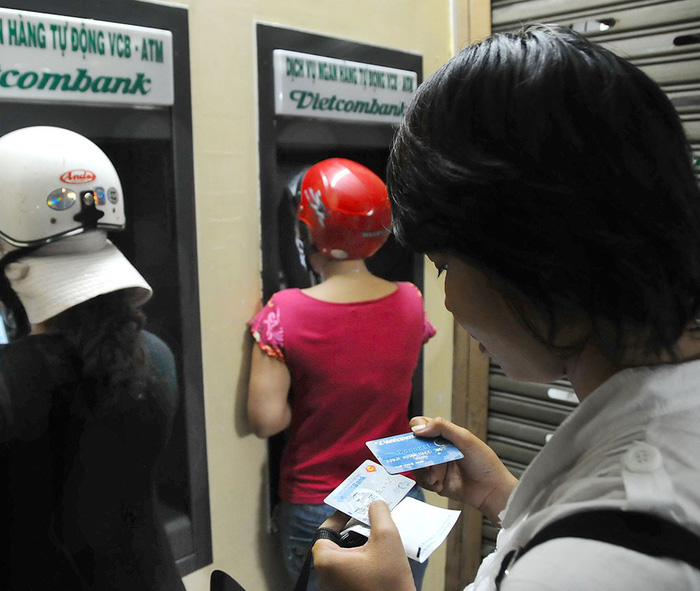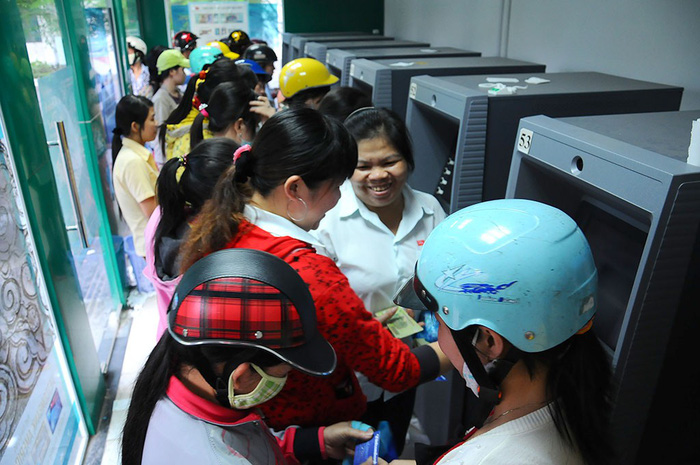Banks in Vietnam are reluctant to replace all magnetic stripe cards with chip cards by the end of 2020 because of tremendous costs, putting roughly 70 million card owners at risk of identity theft, despite a central bank requirement to make the transition.
In early 2016, the State Bank of Vietnam issued a plan that required local commercial banks to make the switch from magnetic stripe cards to chip cards no later than December 31, 2020.
Magnetic stripe cards, or swipe cards, store data on a band of magnetic material that is read by swiping past a magnetic reading head.
Meanwhile, chip cards store data on integrated circuits protected by complex cryptographic algorithms, providing better security against fraud compared to one-time encryption technology as in the case of magnetic stripe cards.
Despite such advantages of chip cards, commercial banks in Vietnam have been hesitant to move forward with the central bank’s request due to concerns over high costs for transition.
According to local lenders, issuing a chip card can set a bank back between US$1.5 and $2.5.
Around 90 percent of Vietnam’s 77 million bank cards are using magnetic-stripe technology, which means roughly 70 million cards are subject to the switch.
In total, banks in Vietnam may have to spend between $105 million and $175 million completely moving toward chip cards, not to mention the additional costs of upgrading their ATM machines and core banking systems to adapt to the change.
 |
| Card owners withdraw money from ATM machines in Vietnam. Photo: Tuoi Tre |
Banks also decry the fact that no official standard for chip technology has been issued by the National Payment Corporation of Vietnam (NAPAS), which is licensed by the State Bank to provide financial switching and electronic clearing services in the country.
“A common set of standards is needed to avoid future problems when inter-bank transactions are made,” said Pham Anh Tuan, deputy general director of lender Vietcombank.
“We are hoping to receive the standards the by the end of this year.”
Dao Minh Tuan, president of the Vietnam Bank Card Association, said he was not optimistic that the complete switch to chip cards could be done by the end of 2020, predicting that banks would need until 2022 to finish the transition.
Security experts have warned that Vietnam’s delayed transition to chip technology can put the country at risk of becoming a ‘haven’ for card criminals from all over the world, as it is among the few countries where the use of magnetic swipe cards are still dominant.
Like us on Facebook or follow us on Twitter to get the latest news about Vietnam!


















































